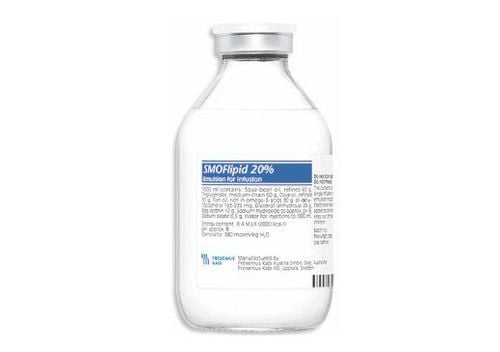This is an automatically translated article.
Raising healthy children is always a matter of concern to many parents. Depending on the age and sex of the child, there are different standards. The standard 9-month-old girl's weight is usually smaller than that of a boy's. Parents need to know the ideal height and weight at each time as well as know what the 9-month-old baby can eat to have appropriate care.
1. Height and weight characteristics of 9-month-old girls
The first years of a child's life are the time when children grow the most. After that, the child's growth in weight and height will begin to slow down as activity levels increase. The weight and height of the child is something that parents often care about. Many parents with small children when they reach the age of crawling and learning to stand, often wonder how much a 9-month-old girl's weight is right. Depending on the age and sex of the child, there are different standards.
In general, the standard 9-month-old girl's weight is smaller than that of girls. The World Health Organization (WHO) has released a standard 9-month-old baby girl's weight chart. Accordingly, the normal weight of a 9-month-old girl is 8.2 kg. A 9-month-old girl weighing less than 7.3 kg is considered at risk of malnutrition and less than 6.6 kg is called malnourished. For example, a 9-month-old girl weighing 7.5 kg, whose weight was within the normal range, was not malnourished. If a 9-month-old girl weighs 6.5 kg, it means she is malnourished. In contrast, a 9-month-old girl's weight over 9.3 kg was considered obese and greater than 10.4 kg was considered obese. The normal height of a 9-month-old girl is 70.1 cm, of which the lower limit is 65.3 cm and the upper limit is 75 cm.
2. What can 9-month-old babies eat?
In order for the child to develop optimally in both height and weight, in the period of 9 months, parents need to understand the full nutritional needs as well as know what the 9-month-old baby can eat to choose the right food for them. little. Need to feed baby with extra powder, porridge, fruit, yogurt, cheese, whey,...
Daily diet includes 3 main meals 3 snacks:
Breast milk 500-600ml Three main meals: powder , porridge, sticky rice Three snacks: fruit, yogurt, cheese, biscuits,... In the daily menu of a 9-month-old baby, it is necessary to ensure that all 4 groups of basic nutrients are met:
Sugar group flour: rice, oats, wheat, legumes,... Protein group: meat, fish, egg yolk, shrimp, crab,... Group of vitamins and minerals: vegetables, fruits, give preference to dark green vegetables, citrus fruits. Fat group: milk and dairy products such as yogurt, cheese, butter,...

Bé 9 tháng ăn được những gì là thắc mắc của nhiều bậc cha mẹ hiện nay
Points to note in the 9-month-old baby's diet:
Baby has incisors, so parents can practice chewing, eating whole grain porridge, solid food powder and minced vegetables, not pureed vegetables. grind, grind as before. Gradually increase the consistency of food for 9 months old baby Build a rich menu. The dishes need to be regularly renewed, varied, colorful and beautifully presented to attract children's attention. This can help your baby get used to different foods and flavors, and at the same time stimulate your baby's eating. Children should eat yogurt, fruit, whey, cheese at snacks to supplement vitamins and minerals as well as supplement good bacteria for the baby's digestive system. Practice feeding your baby with foods such as vegetables and fruits to help them get excited about the meal and eat more deliciously. You should cook each meal to ensure nutrients, limiting reheating food will reduce the quality of the dish. Should plan eating scientifically and reasonably for breakfast, lunch and dinner as well as snacks so that the baby can get used to meal times. Do not prolong the meal time for too long Create a comfortable, happy atmosphere and praise and encourage children to eat. Do not force or threaten children to eat because this will create stress and depression when it comes to meals, which can make children anorexic. Do not season foods too salty and avoid buying ready-to-eat foods for children. Babies still can't eat the following foods: fresh milk, egg whites, hard shell seafood such as mussels, oysters, snails because of the high risk of allergies. Give your baby enough water to drink, not limit water intake like at 6 months old to avoid constipation. Practice letting your baby sit at the table to practice serious eating habits.
3. How to take care of a 9-month-old baby properly?
Immunization
If your child has been fully immunized before, no further shots are needed in this round, however, additional vaccinations may be given if the previous vaccinations are delayed. You can get a flu shot if you're in flu season.

Ngoài vấn đề cân nặng bé gái 9 tháng tuổi, cha mẹ nên đưa trẻ tiêm chủng đầy đủ
Brain development
Read books to your baby every day, choose books with lots of pictures and colors. Teach your baby to touch, talk, and point to objects. Talk to your child more, read poetry and sing along with them. Introduce your baby to a second language if you are using that language in the family. Sleep
Practice letting your baby nap and sleep at night at a fixed time, encouraging the baby to sleep in his crib. Minimize time watching TV, increase play time, interact with surrounding objects and communicate with family members. Safety
Raise the rails, lower the mattress in the crib to avoid the risk of falling. Keep the water heater temperature from going above 120°F (49°C). Do not leave power cords, door zippers or telephone cords indiscriminate. Find and remove dangerous objects within the sight and reach of children. Do not smoke and use addictive substances in the space where children live. Carefully cover at the top of the stairs to prevent children from falling. If there is a swimming pool, it must be carefully fenced and locked carefully. Do not use a walker that is unsafe and poses a risk of falling. An improper walker can affect the motor skills needed for walking. Medicines must be kept in cabinets or on shelves above the reach of children. Chemicals and cleaning products must be tightly closed and out of reach of children. Be careful with hot liquids such as boiling water, hot oil. Do not let children come into contact with the knobs of gas stoves, stoves, electric stoves and machinery and equipment in the kitchen. Cutlery, sharp objects and cleaning utensils must be kept out of reach of children. Make sure someone is watching your baby at all times, even during bath time. Do not assign childcare to your baby's siblings if they are immature. Tables and chairs, televisions, bookshelves, wall-mounted objects must be firmly fixed so as not to fall on the baby. Windows and balcony doors are always locked to prevent children from crawling out. Wear shoes for children when going out. Choose shoes with soft, elastic soles and wide, long, non-binding toes. Do not let children go out in the sun. When going out, always use a sunscreen with a protection factor of SPF 15 or higher to prevent skin problems. 9-month-old children need 5mg of elemental zinc/day to eat well, reach the correct height and weight and exceed the standard. Zinc plays a role in affecting most biological processes taking place in the body, especially the breakdown of nucleic acids, proteins... Organs in the body when zinc deficiency can lead to a There are a number of diseases such as neurological disorders, irritability, etc. Therefore, parents need to learn about the role of zinc and guide them to appropriate zinc supplements for their children.
In addition to zinc, parents also need to supplement their children with other important vitamins and minerals such as lysine, chromium, B vitamins,... errands.
Please regularly visit Vinmec.com website and update useful information to take care of your baby and family.













